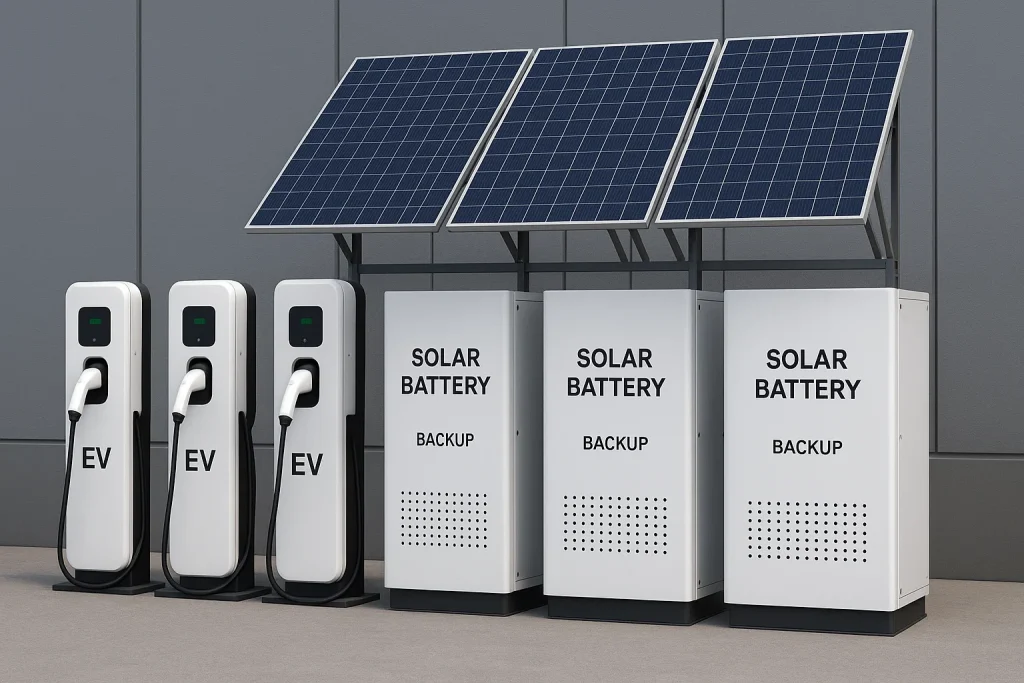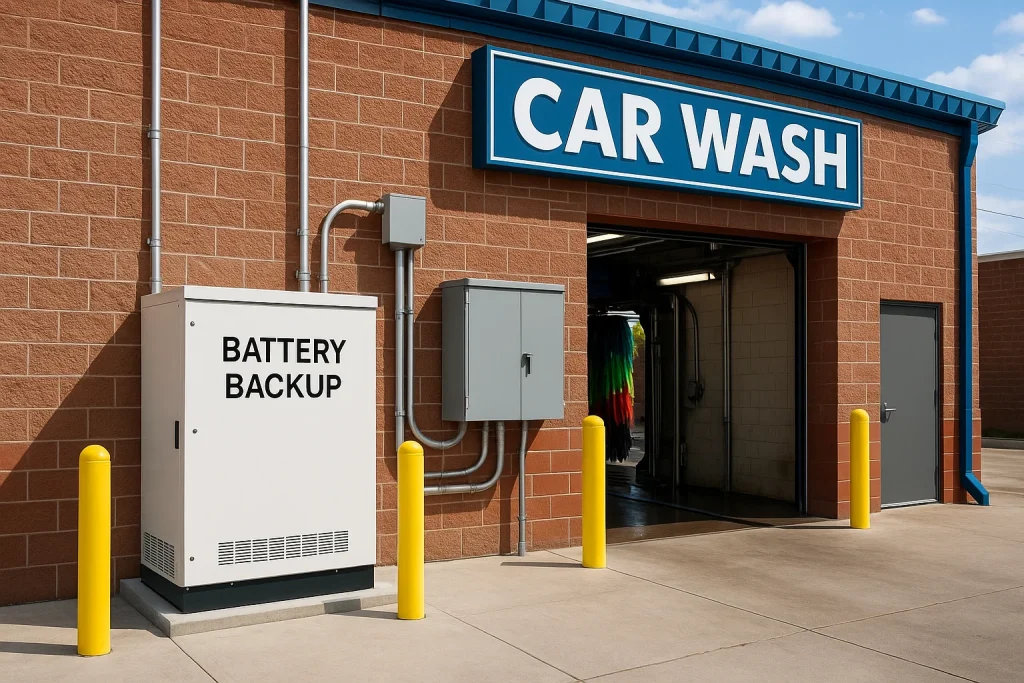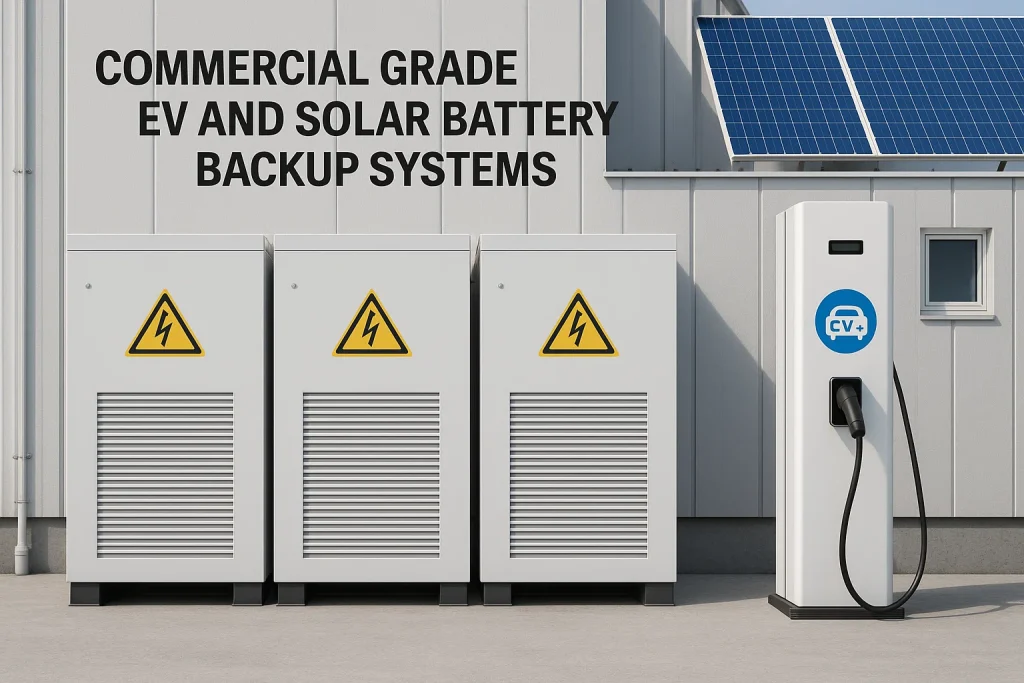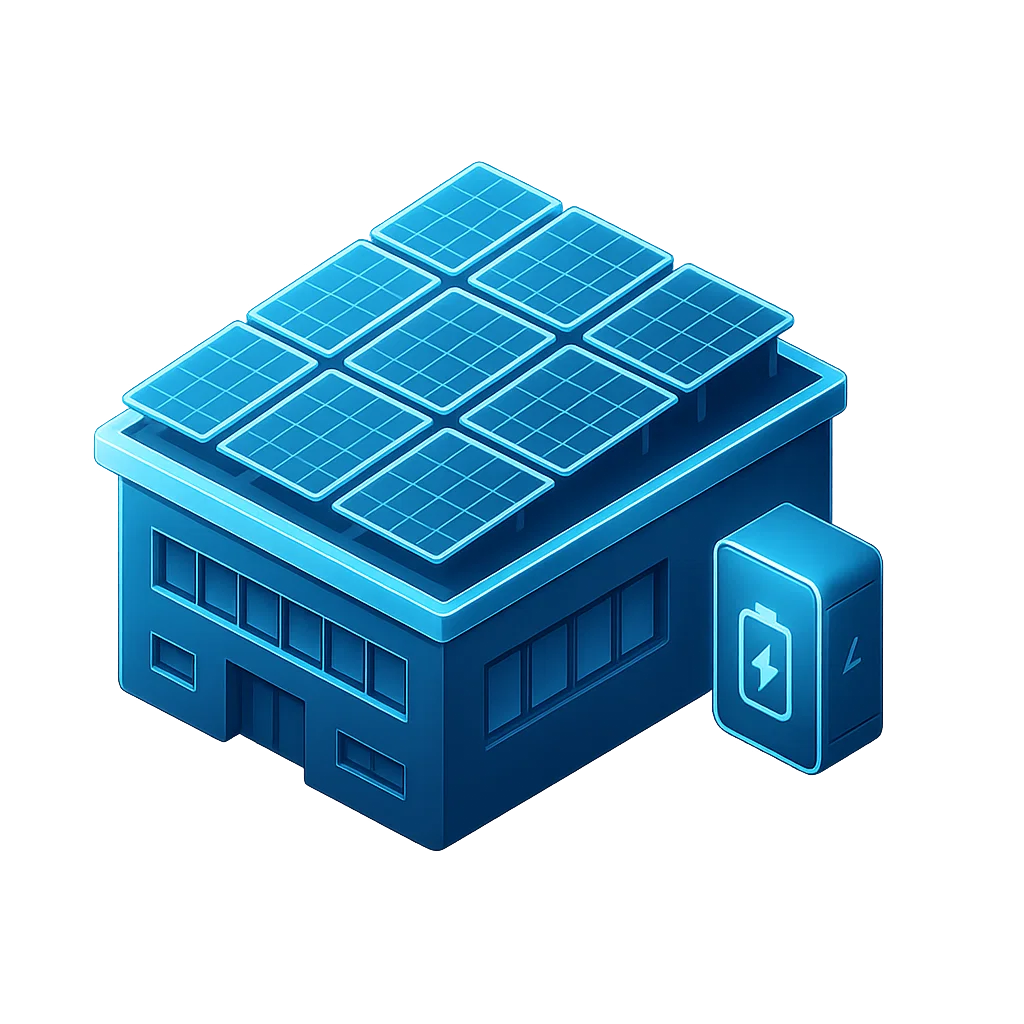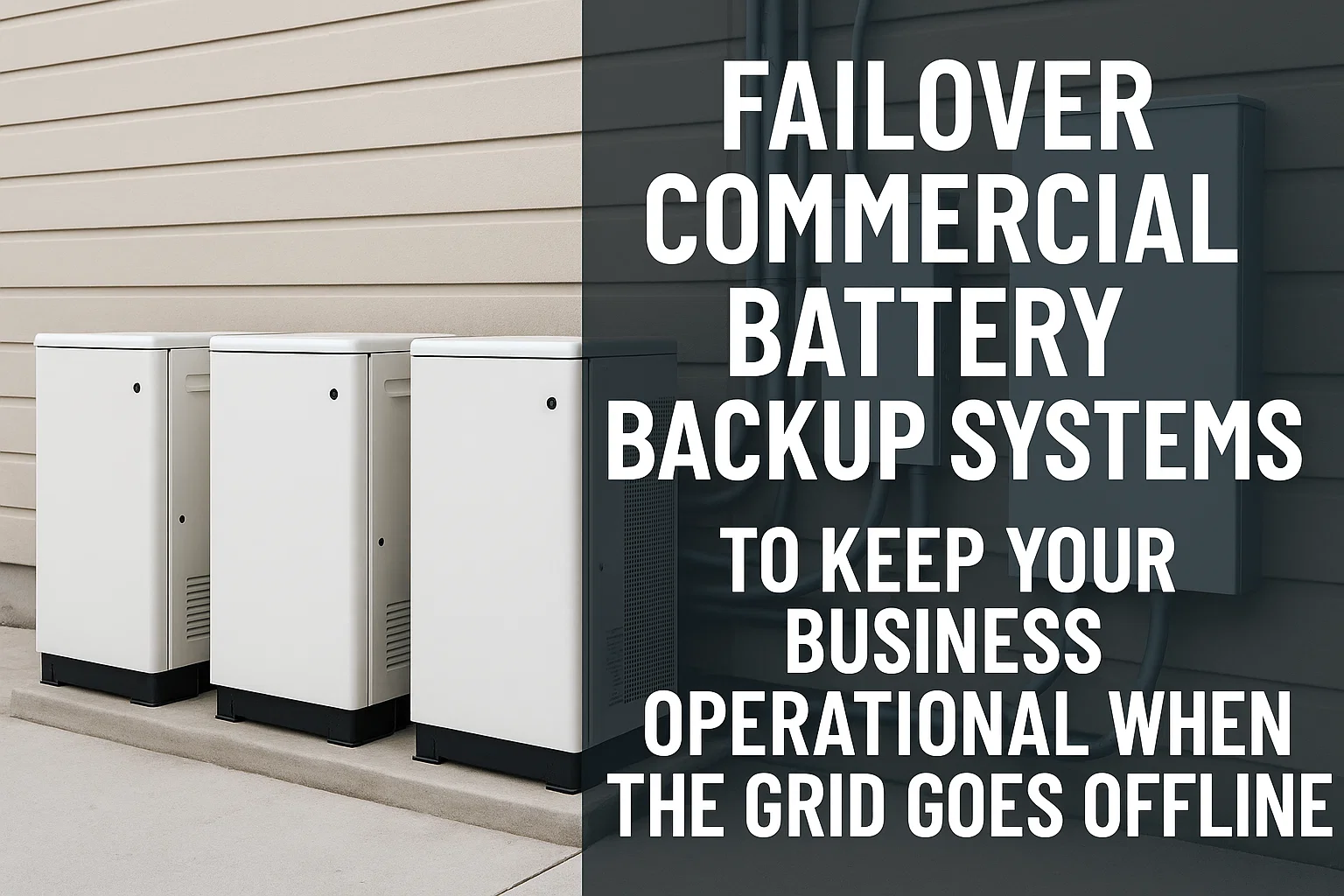EV Battery Energy Storage Systems (EV‑BESS)
What Is an EV‑BESS?
An EV battery energy storage system (EV‑BESS) integrates lithium-ion batteries—either new or second-life EV packs—into commercial infrastructure to store solar energy, manage EV charging loads, and provide resilience and cost savings.

